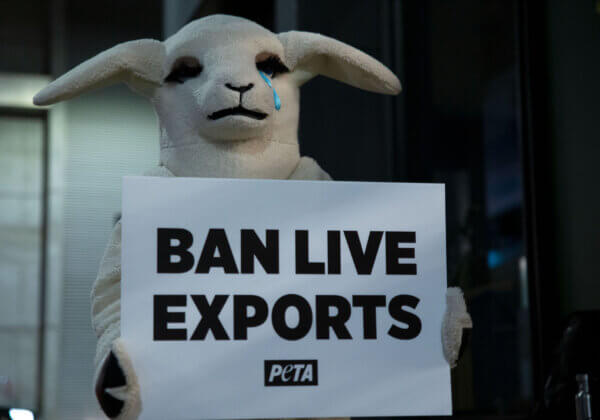Kenya’s Ban on Killing of Donkeys for Ejiao Has Been Rescinded
Update: June 2020
Earlier this year, Kenya’s cabinet secretary for agriculture announced a ban on all donkey slaughterhouses in the country, but it has now been rescinded. Donkeys need your help more than ever.
*****
Originally published: February 2020
After nearly two years of pressure from PETA affiliates the cabinet secretary of Kenya’s Ministry of Agriculture, Peter Munya, has finally banned donkey abattoirs in the country!
At least 1,000 donkeys are slaughtered every day in Kenya to be exported to China, where their skin is boiled down to make ejiao, an ingredient used in medicines, cosmetics, and confectionery.
Last year, PETA Asia’s investigative footage revealed that frightened donkeys are cruelly beaten by workers at government-sanctioned abattoirs, all of which will be shut down by next month.
The investigation also found that donkeys are packed onto lorries and forced to endure gruelling journeys to abattoirs from as far away as neighbouring countries. The trip from the border with Ethiopia can take two days, during which the animals aren’t given any water or food, and many collapse and even die. Workers left the bodies of two donkeys who had died during the long journey outside an abattoir and dragged another one – who was injured so badly that she was unable to stand – from the lorry, dumped her on the ground, and kicked her.
Pakistan and numerous African countries – including Botswana, Burkina Faso, Mali, Niger, Senegal, Tanzania, and Uganda – have banned Chinese-funded abattoirs or implemented policies to stop the export of donkey skins to China. In addition, eBay and dozens of other companies have agreed to stop selling items containing ejiao.
The Misery Behind Ejiao
Kenya’s decision to stop fuelling the cruel ejiao trade is great news, but the market for ejiao is still growing rapidly. Donkeys are now being imported into China for slaughter from countries in Asia, the Middle East, and South America in order to meet the demand, and some other countries, including Australia, are shamefully considering opening up a live-export donkey trade. The ejiao industry is also giving rise to a black market for donkeys: many are being taken by rustlers or slaughtered illegally so that people can profit from China’s medicinal market. The demand is so high that other animals, such as horses, pigs, and cows, are now meeting the same gruesome fate in the production of fake ejiao.

What You Can Do for Donkeys
The Northern Territory government exports donkey hides to China to fuel the cruel ejiao trade and may consider expanding this business by implementing a live-donkey export industry. Please urge the Agriculture Minister David Littleproud to reject any plans to send live donkeys to be slaughtered in China immediately.






